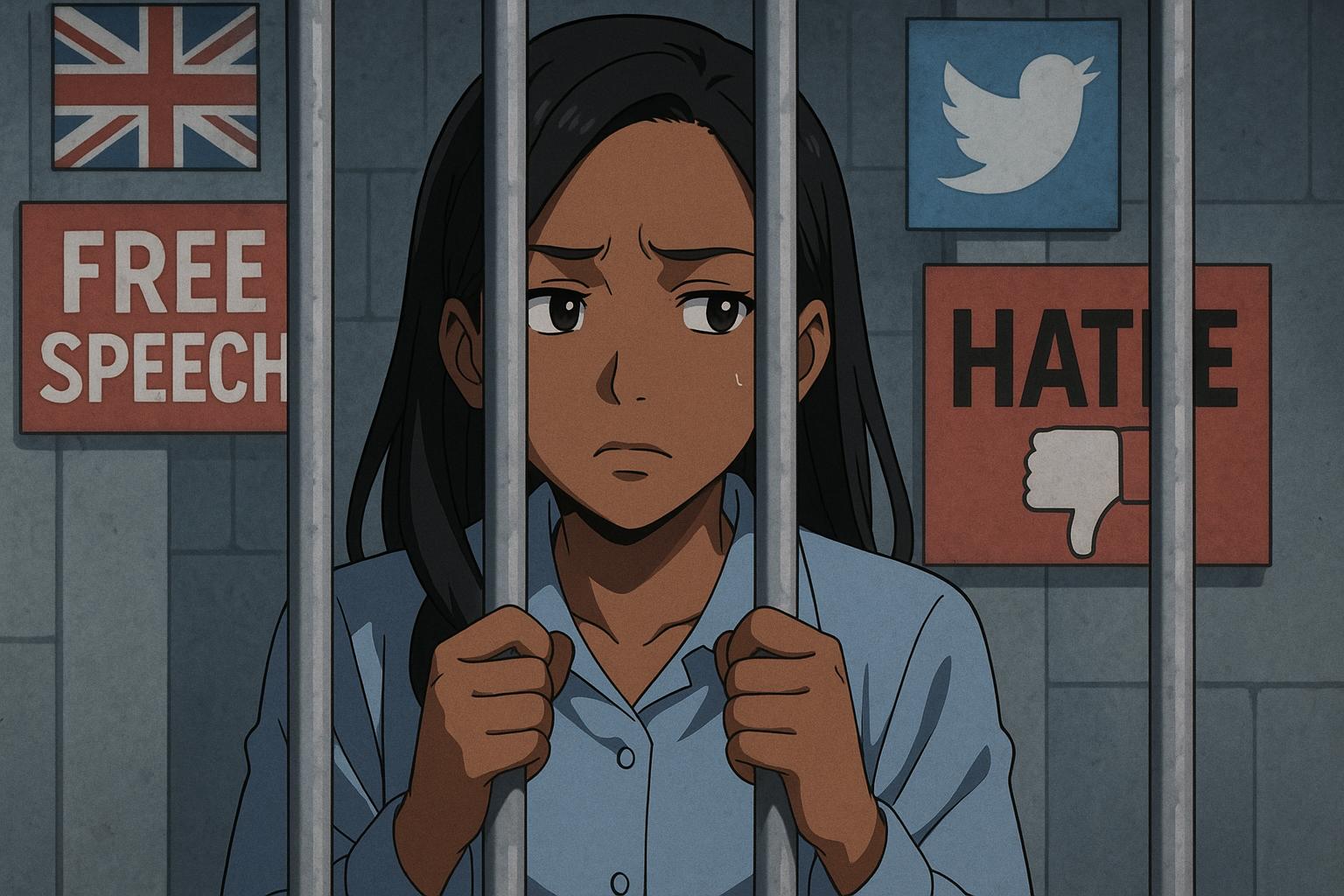Lucy Connolly, a 42-year-old childminder and wife of Conservative councillor Raymond Connolly, has become the centre of a contentious legal debate following her arrest in August. Connolly was sentenced to 31 months in prison after pleading guilty to inciting racial hatred through a post on X (formerly Twitter), in which she called for hotels housing asylum seekers to be set ablaze. This inflammatory message was made on the same day that a tragic incident in Southport resulted in the deaths of three young girls. The case has led to heightened scrutiny not only of Connolly's actions but also of the broader implications of hate speech laws in the UK.
The response from the legal system reflected a firm stance on the issue of hate speech online. During the sentencing, Judge Melbourne Inman KC indicated that the punishment aimed to "punish and deter" similar offences. Connolly's prior lack of convictions did not mitigate the court's decision. In her defence, she later admitted her intention was to stir up racial animosities, a factor that likely weighed heavily in her sentencing.
As the case unfolded, it drew the attention of both domestic and international figures, escalating into a diplomatic issue. The White House confirmed that it is "monitoring" the situation, revealing a burgeoning interest from the Trump administration in the state of free speech in the UK. A spokesperson for the State Department expressed concern over perceived infringements on freedom of expression, emphasising the United States’ commitment to this principle globally. This intervention aligns with a broader pattern during Trump's presidency, characterised by a willingness to engage in matters beyond American borders, particularly concerning controversial political and social issues.
In the UK, the ramifications have stirred significant public debate and divided opinions among political leaders. Former Home Secretary Suella Braverman and various Conservative Party members have voiced their support for Connolly, with Braverman labelling the sentence as "excessive" and suggesting that Connolly has become a victim of a "politicised two-tier justice system." This sentiment resonates with a segment of the population that views the laws governing hate speech as overly punitive, especially in light of the impact of social media.
Critics of the sentence contend that Connolly’s actions, while reprehensible, necessitated a more lenient penalty. Former Prime Minister Boris Johnson remarked that although Connolly's statements were "vile," a more appropriate response would have been a fine or community service rather than imprisonment, particularly given her lack of prior infractions. This perspective raises questions about the effectiveness and proportionality of current judicial responses to hate speech incidents, amid calls for a reevaluation of the laws themselves.
As Connolly's appeal was recently dismissed, she remains in custody until at least August, casting a long shadow over the discourse surrounding freedom of speech and the legal boundaries governing it in the UK. Campaigners have escalated their advocacy efforts, pressing US officials, including Secretary of State Marco Rubio, to reconsider the implications of stringent hate speech laws across Europe, framing them as a potential threat to democratic freedoms.
In this complex landscape, Connolly’s case epitomises the balancing act between maintaining public safety and upholding individual rights to free expression, highlighting a societal struggle to navigate the increasingly charged nature of public discourse in digital spaces. As the legal and political stakes continue to rise, the outcomes of such cases will be pivotal in shaping the future of hate speech legislation in the UK and possibly beyond.
Reference Map:
- Paragraph 1 – [1], [2], [5]
- Paragraph 2 – [2], [3], [4]
- Paragraph 3 – [1], [5], [6]
- Paragraph 4 – [4], [6], [7]
- Paragraph 5 – [1], [3], [4]
- Paragraph 6 – [6], [7]
Source: Noah Wire Services
